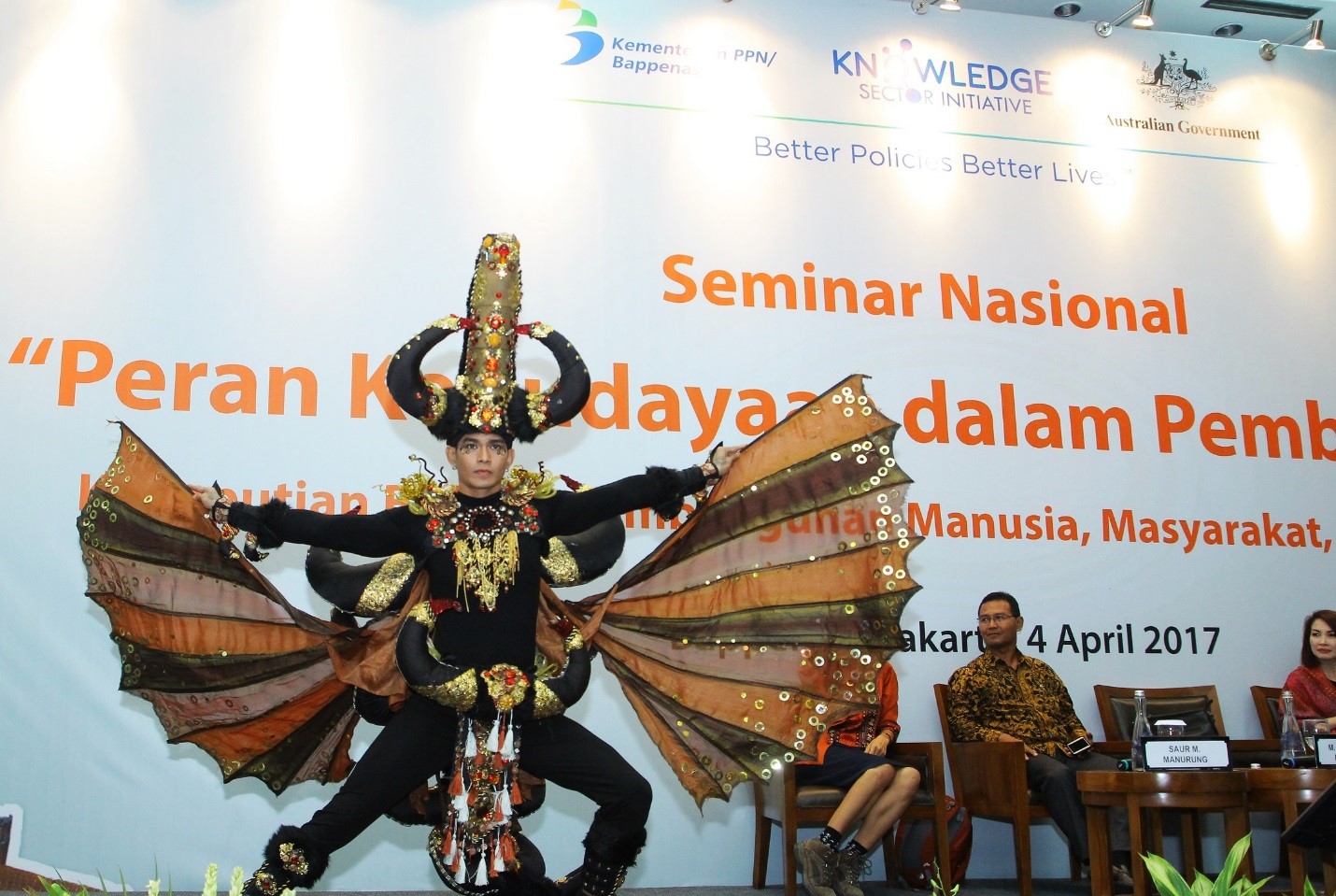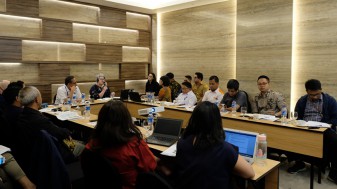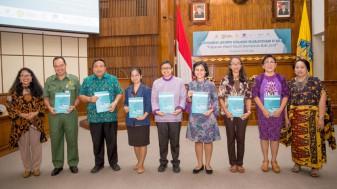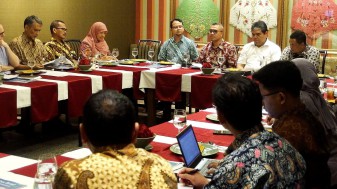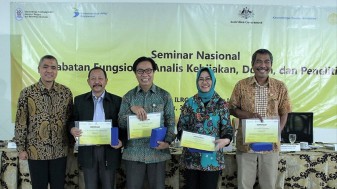by M. Salman and Ramadian Nugrahane
“Indonesia has extremely rich and living local traditions and sources of local knowledge that can provide a strong basis to help the implementation of national development plan”, said Bambang Brodjonegoro, Minister of National Development Planning/Head of Bappenas, in his keynote speech at the national seminar on April 4, 2017 on “The Role of Culture in National Development”, hosted by Bappenas and supported by KSI. Culture must be regarded as an important asset that contributes to national development. The Minister underlined that Indonesia can only become a great nation if the country can successfully embody culture into national development.
The seminar was organized to realize better policy-making in national development that does not leave behind local wisdoms, which have been acquired and accumulated over time through direct experience, and materialized into cultural expressions. Local wisdoms can provide significant inputs to ensure the successful implementation of national development without triggering local resistance.
National development is not only about improving the economic welfare of the people but improving the whole aspects within the community. This is why understanding local culture is important to national development. In the education sector, for example, the national curriculum may not be suitable to particular communities or local tribes. Saur “Butet” Marlina Manurung is an anthropologist and educationalist and during her presentation said that for children of remote tribes, education is not about getting good grades. Education to them means gaining and mastering the tools to defend themselves and their environment from being exploited. Her Sokola Rimba is a non-profit organization dedicated to providing literacy and advocacy programs for Indigenous and marginalized communities throughout the Indonesian archipelago. Through their own brand of education, these people can also pass on their culture and wisdoms to the next generation. Traditional songs, norms and values, can be written down and documented in their own mother tongue.
Preserving and leveraging culture can be effective in boosting the economy, as proven by the Banyuwangi district, East Java. Within the last five years, Banyuwangi has successfully boosted its economy by capitalizing on its culture through various events and festivals. In 2012, the local government organized twelve cultural events but in 2017, it managed to offer more than seventy cultural events to local and foreign tourist. The increase in tourism has catapulted the district’s own local revenues, improving the local economy from being ranked among the lowest GDP per capita in East Java to the top three highest within five years. Other examples of how culture drives economy for the better can be seen in the world-famous Bali, the batik culture of Java, and Jember Fashion Carnival (JFC) which has spawned tens of other Carnivals throughout the country. JFC’s charismatic leader Dynand Fariz made a colorful presentation of how culture can be used to support tourism and enterprises.
The success story of Banyuwangi and Jember can be adapted and replicated to other regions in the country to help achieve successful regional development through culture. As each region has its own unique culture, the replication should be focused on the methods, such as the use of information technology. For example, the Banyuwangi district government does not allow developers to build a modern shopping mall in the district. Instead, its local government has built an on-line mall that sells various local products which have attracted buyers not only domestically, but also internationally.
At the national level, the challenge in incorporating culture into national development lies in coordinating the various ministries and institutions that are involved in culture-related issues. This is one of the salient issues addressed in the seminar. Hilmar Farid, Director General of Culture of the Ministry of Education and Culture, said the government must also pay attention to culture practitioners in remote areas, and not only focus on those who reside in big cities. The government must play an active role in protecting, managing, and providing the course and strategy to utilizing culture as asset to national development. According to Melani Budianta, Professor of Cultural Studies at the University of Indonesia, the government must also be able to determine the goal of the culture-based national development. The basic principles, said Budianta, is through inclusive, non-discriminative policy based on local people’s participation. Such policy ensures that no one is left behind in the process of development. She also encourages each region to develop its own cultural potential and establish inter-communities culture synergy that can provide valuable insights to the government related to the course of national development. Incorporating culture into development is the way to shape and preserve Indonesian identity as a nation with rich culture.

